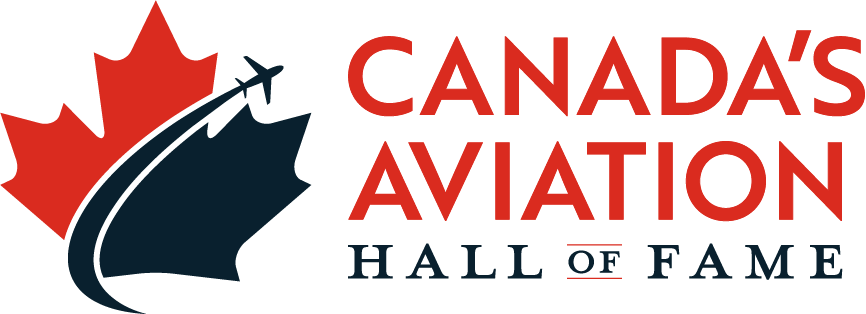Canadian Business Aviation Association (CBAA)

"As the voice for Canadian corporate and business aviation, the Canadian Business Aviation Association has, for over forty years, promoted the recognition of business aviation, and safety, security and efficiency among its members, resulting in significant contributions to aviation in Canada"
Business aviation in Canada traces its roots back to 1920, when Imperial Oil acquired two Junkers-Larsen JL-6 aircraft for use in oil exploration and personnel transport in the remote areas of Northern Canada. The 'bush flying' era had already been established: owners of small businesses saw the advantages of using aircraft and hired pilots to transport their freight; the government was using aircraft to serve its priority, aerial survey and mapping of its vast land. Forestry patrols provided other incentives for using aircraft, and charter companies were formed for northern explorations, flying men and equipment to isolated mining camps. By the late 1930s, aircraft design and operation had improved greatly, and the popularity of aviation advanced quickly.
In the mid-1940s, the Corporate Aircraft Owners Association (later the NBAA, 1952) was formed in the U.S. The need for such an organization in Canada was also felt: by the late 1950s corporate flights were facing restrictions and government directives, and each company tried to resolve its problems on its own. In 1959, a group met with the Canadian Owners and Pilots Association (COPA) to propose the formation of an association under its umbrella of service to owner-pilots in Canada. By the end of that year, 32 member companies were registered.
Two years later the group became an independent organization and was incorporated in 1961 as the Canadian Business Aircraft Association with over 40 members. In 2001 it was renamed the Canadian Business Aviation Association (CBAA). Today its membership stands at more than 270 companies and organizations that operate over 500 business aircraft.
From its humble beginnings over 80 years ago, business aviation has grown to become an integral part of Canada's economy. The use of corporate aircraft has enabled many firms to maintain a competitive edge in the market place. From single engine, owner-piloted aircraft to intercontinentally capable corporate jets, business aviation represents a diverse range of aircraft and operators. Uses of aircraft is equally diverse. At any given time a business aircraft may be transporting employees on a sales trip, rushing parts from one factory site to another, taking a group charter overseas to represent Canada at an international event, or even using an empty seat to take a child needing medical attention across the country.
Corporate aircraft have access to many airports that are closer to the user's destination, providing a vital air transport link to many communities not serviced by scheduled operators. The CBAA and its members encourage regional economic growth and provide employment through flight operations, manufacturing, sales, service, maintenance and repair operations.
CBAA is a founding member of the International Business Aviation Council (IBAC) which has been awarded observer status at the General Assembly of the International Civil Aviation Organization (ICAO), representing business aviation before this major international forum. International objectives are advanced through IBAC, and bilaterally with the NBAA in Washington.
CBAA is affiliated with other aviation associations, including COPA, the Air Transport Association of Canada (ATAC), Aviation Councils, the Air Transport Association of Quebec, the Northern Air Transportation Association (NATA), and local Airport Authorities. CBAA works in coordination with these and other organizations to address matters of common concern
The national office maintains a dedicated, full-time staff of industry specialists. Their role involves handling the needs of members, media concerns, inter-governmental issues, and looking to the future to ensure that aviation continues to grow and evolve with safety and environmental sensitivity. Regional interests are pursued through Chapters. CBAA depends upon a vast volunteer base from its membership to work on the committees it creates to handle chapter issues and to serve on the Board of Directors.
Areas of interest to the Association include:
• constraints on airport and airspace access
• security in the post-September 11, 2001 era
• the emergence of new air navigation technologies, systems and procedures
• the ongoing trend to transfer responsibilities from government to industry
• user fees and levels of service
• environmental issues relating to noise and emissions.
In recent years the CBAA has assumed a leadership role in advocacy and regulatory stewardship for Canadian business aviation interests. On November 15, 2005 Transport Canada transferred administrative and management authority to the CBAA for Canadian Aviation Regulations (CAR) Part VI, General Operating and Flight Rules, Subpart IV, Private Operator Passenger Transportation, Subpart 604. Today, the CBAA is the sole issuing authority in Canada for Private Operator Certificates.
The Private Operator Certificates program is sustained through a partnership between Transport Canada and CBAA. The result of this partnership: corporate aviation in Canada maintains a very low accident record and has earned respect at many levels.
The CBAA believes in giving back to the community. In 2005, the association set up an annual Flight Training Scholarship for a deserving Air Cadet. It supports Hope Air, a non-profit volunteer organization that arranges air transportation for Canadians who need medical treatment. Over the past 12 years, CBAA has donated over $115,000 to Hope Air from the proceeds of its annual golf tournaments. Hope Air has arranged more than 48,000 flights for patients and family members to date.
The CBAA has grown from modest beginnings to become a key part of the business aviation community. It provides essential support to its members and works to ensure that aviation remains safe, dependable and efficient, not only in Canada, but around the world.
The Canadian Business Aviation Association (CBAA) was presented with the Belt of Orion Award for Excellence at ceremonies held in Ottawa, Ontario in 2007.
The CBAA holds an annual Convention and Trade Show that attracts international attendance. During this event, the CBAA recognizes the contributions of individuals and companies to the development and safe operation of business aviation by issuing a number of annual awards.
